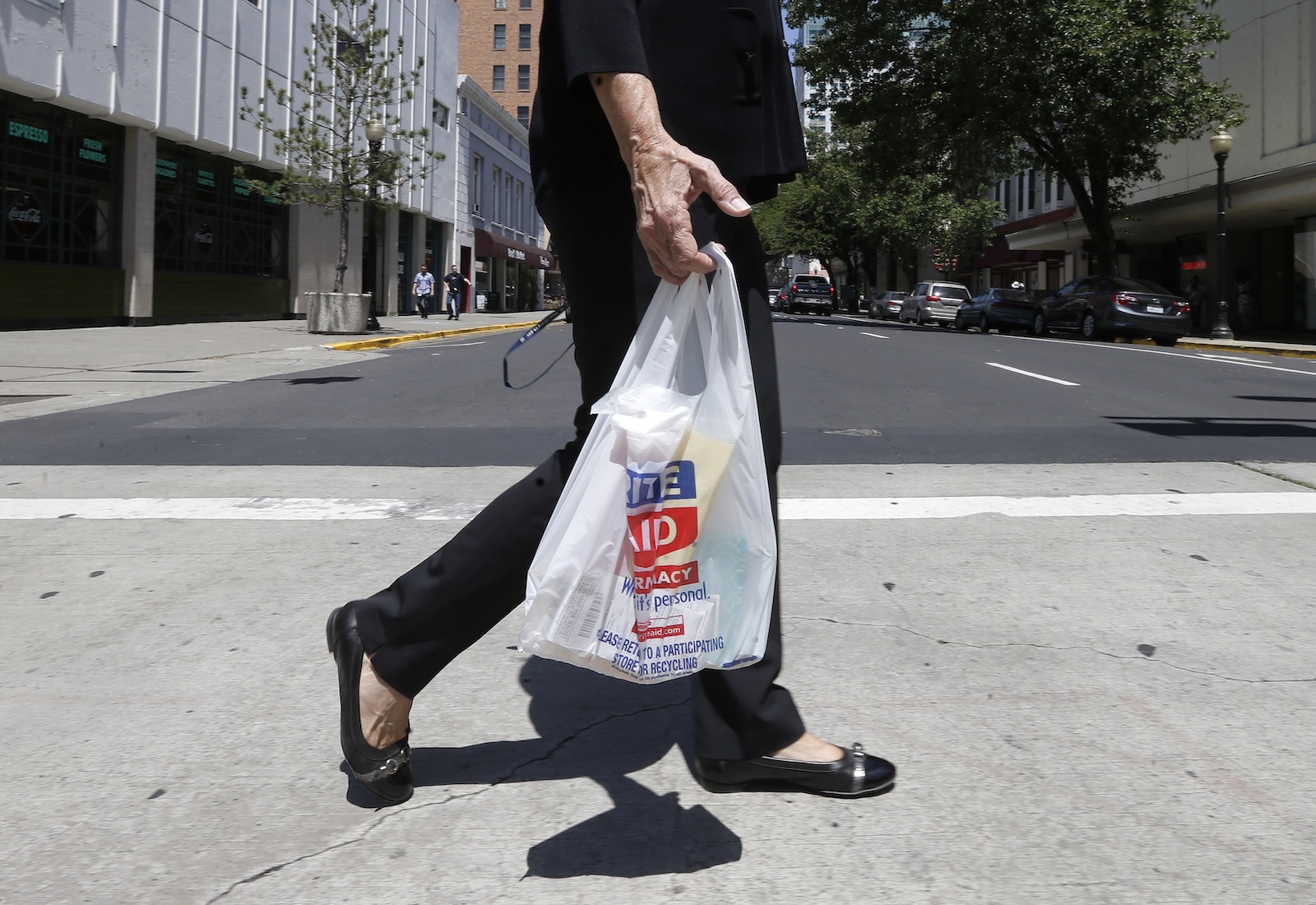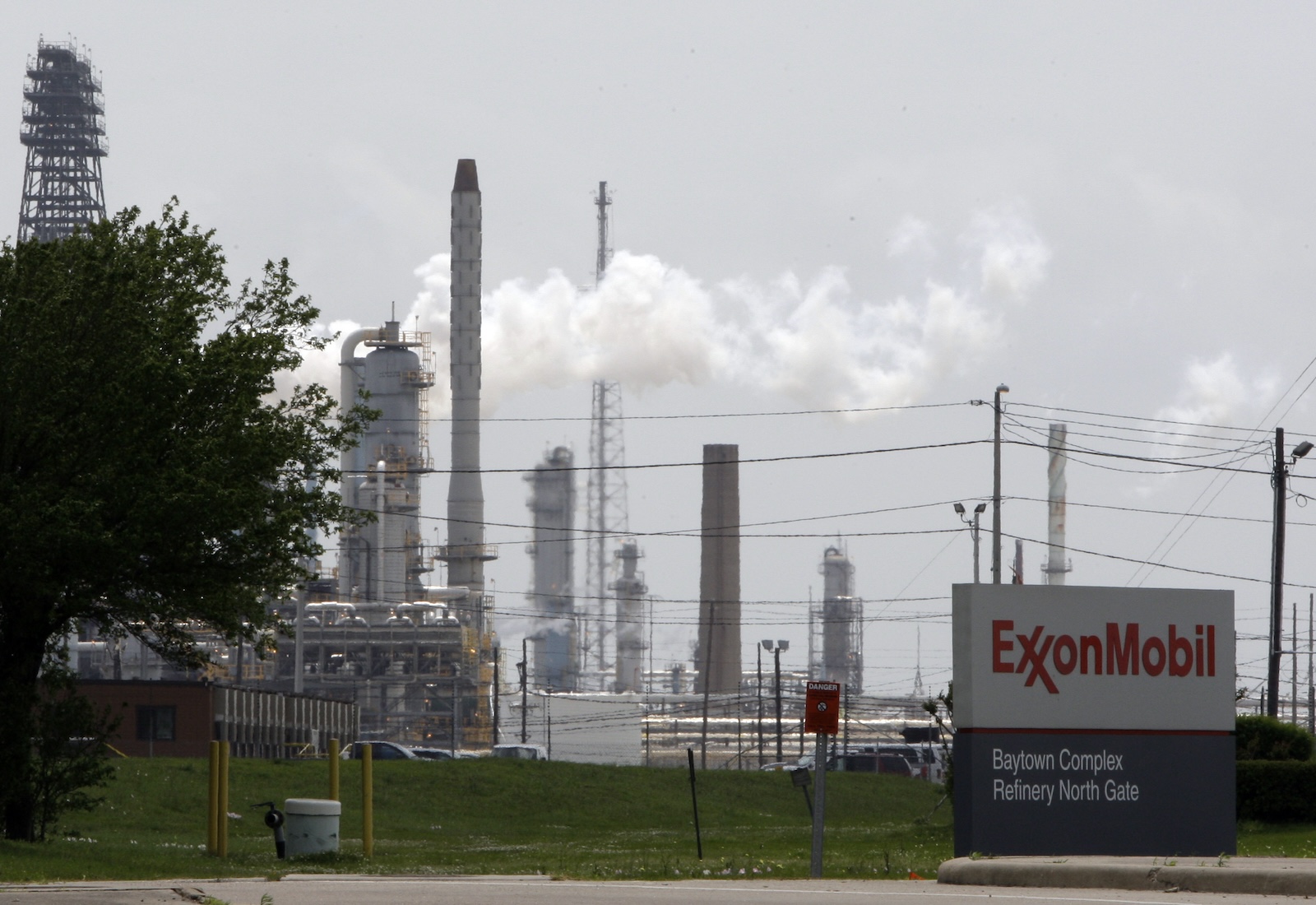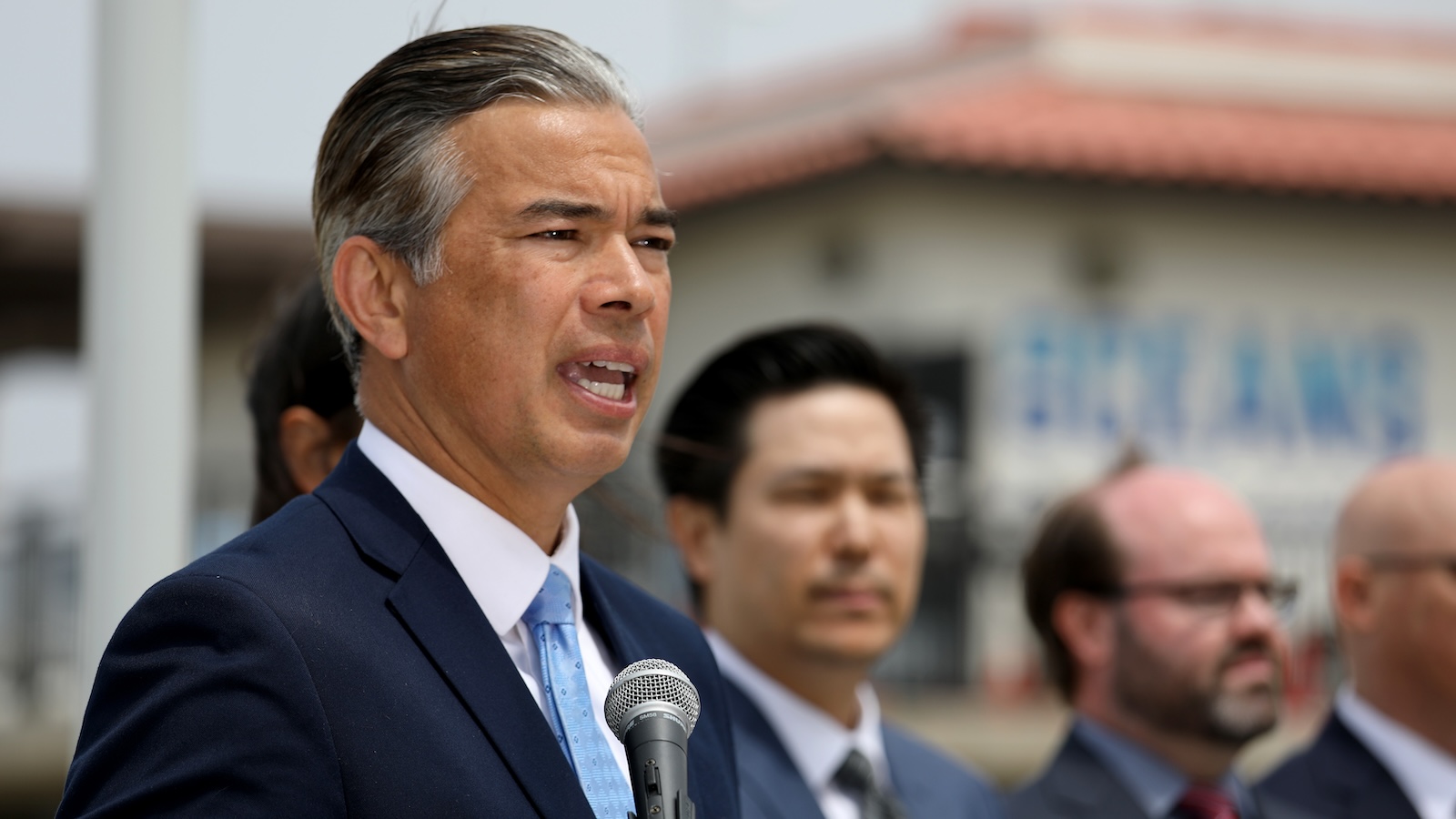California Attorney General Rob Bonta and a coalition of environmental nonprofits announced two distinct but related lawsuits against Exxon Mobil on Monday — not over the oil giant’s contribution to climate change, but over its role in the plastic pollution crisis.
The attorney general’s lawsuit, filed in the San Francisco County Superior Court, represents the culmination of a two-year investigation into what Bonta has called the petrochemical industry’s “decades-long deception campaign” over the sustainability of plastics and the feasibility of plastics recycling. Drawing on documents subpoenaed from Exxon Mobil and trade groups that it belongs to, the complaint says that Exxon Mobil has known since the 1970s about the technical and economic limitations of plastics recycling but promoted it anyway, using it to justify booming plastic production.
“The company has propped up sham solutions, manipulated the public, and lied to consumers,” Bonta told reporters at a press conference on Monday. “It’s time for Exxon Mobil to pay the price for its deceit.”
The attorney general’s complaint includes six discrete claims against Exxon Mobil, including destruction of natural resources, false advertising, greenwashing, public nuisance, water pollution, and unfair competition. The nonprofits involved in the second, more limited lawsuit include the Sierra Club and three water protection organizations: Heal the Bay, San Francisco Baykeeper, and the Surfrider Foundation, which link the failure of plastics recycling to surging aquatic plastic pollution that they have spent millions of dollars scrambling to clean up. According to Bonta, the two lawsuits put more pressure on Exxon than just one. “More is more, more is better,” he said on Monday.
The lawsuits single out Exxon Mobil as the world’s largest producer of polymers used to make single-use plastics — products like grocery bags, cutlery, and takeout containers that are used for just a few minutes before being thrown away. These products, along with packaging, account for nearly 40 percent of global plastic production, and are unlikely to be recycled due to technological and economic constraints.
In the U.S., the overall plastics recycling rate is just 5 percent. It has never been higher than 10 percent. Most plastic is burned or sent to a landfill, or becomes litter in the natural environment.
According to Heal the Bay CEO Tracy Quinn, who addressed reporters on Monday, the cleanup and prevention of plastic pollution costs taxpayers in California alone some $420 million a year. Chemicals used in plastics, as well as the accumulation of small plastic particles throughout the environment and in people’s bodies, may also be contributing to health problems.

Associated Press
The attorney general’s 147-page lawsuit says Exxon Mobil’s actions have directly contributed to the proliferation of plastic. First, it says, Exxon Mobil’s predecessor companies and trade groups worked to normalize the use of disposable plastics in the early 20th century. By the 1960s, Exxon and Mobil were pushing dozens of disposable plastic products designed to supplant their more natural, degradable counterparts. The 2011 book Plastic: A Toxic Love Story details how Mobil’s plastic produce bags, for example, were designed to replace the paper versions that had once been the norm in grocery stores, and how the company’s Hefty-brand plastic garbage bags helped displace the common consumer practice of lining trash cans with newspaper.
When plastic started ending up as litter on the side of the road and in waterways, Exxon, Mobil, and trade groups the companies belonged to tried to quell the public’s concern — and the threat of government regulation to reduce plastic production — by promoting anti-litter campaigns that deflected blame onto consumers, according to the attorney general’s lawsuit.
They also promoted recycling, allegedly spending millions of dollars on advertising beginning in the 1980s and ’90s. A 12-page, editorial-style advertisement in the July 1989 issue of Time magazine, for example, told readers there was an “urgent need to recycle” in order to keep plastics out of landfills and the environment. Documents cited in the lawsuits, however, show that members of the Society of the Plastics Industry — one of the trade groups Exxon and Mobil belonged to — had been discussing the infeasibility of plastics recycling since as early as the 1970s. An internal report from 1973 claimed that “when plastics leave fabrication points, they are almost never recovered” for recycling. Documents show that other industry groups publicly set targets for recycling that they knew they would be unable to meet.
“Lies,” Bonta told reporters. “The end goal was to drive people to buy, buy, buy, and to drive Exxon Mobil’s profits up, up, up.”
The newest deception, he alleged, is related to a supposedly new way to recycle products that Exxon Mobil and other companies call “chemical recycling” or “advanced recycling.” This kind of recycling involves melting plastic into its constituent polymers and, in theory, reshaping it back into plastic products. Exxon’s corporate communications suggest there are “no evident technical limitations regarding how many times a plastic product can be put through advanced recycling processes.”
Most chemical recycling ventures, however, have been unable to operate beyond a demonstration capacity, and they cannot handle large volumes of postconsumer plastic waste. Exxon Mobil has one operational facility, in Texas, and according to documents obtained by the attorney general’s office, 92 percent of the plastic that undergoes chemical recycling processes there is not turned into new plastic products; it is converted into fuel.

AP Photo / Pat Sullivan
Bonta’s office called Exxon Mobil’s promotion of chemical recycling “nothing more than a public relations stunt meant to encourage the public to keep purchasing single-use plastics that are fueling the plastics pollution crisis.”
In response to Grist’s request for comment, an Exxon Mobil spokesperson said that “advanced recycling works” and that the company has used it to process “more than 60 million pounds of plastic waste into usable raw materials, keeping it out of landfills.”
“For decades, California officials have known their recycling system isn’t effective,” the spokesperson said. “They failed to act, and now they seek to blame others. Instead of suing us, they could have worked with us to fix the problem and keep plastic out of landfills.”
Other companies facing legal action over their contribution to the plastic pollution crisis include Coca-Cola, Frito-Lay, and Pepsi, all of which were named in a lawsuit filed earlier this year by the City of Baltimore. Separately, New York state Attorney General Letitia James sued Pepsi last year over pollution along the Buffalo River.
Bonta told reporters on Monday that he’s seeking civil penalties against Exxon Mobil, and for the company to be forced to give up revenue it earned as a result of its deceptive marketing. He said he wants “billions of dollars” from Exxon Mobil to clean up existing plastic pollution and reeducate California consumers about the risks of plastics and the limitations of recycling. His lawsuit and the nonprofits’ also seek an injunction that would force Exxon to stop promoting plastics recycling.
“It’s time for Exxon Mobil to tell the truth,” Bonta said.
Environmental groups not involved in the complaints applauded the attorney general’s efforts and said they hope it will lead to legal action in other jurisdictions. “This is the single most consequential lawsuit filed against the plastics industry for its persistent and continued lying about plastics recycling,” Judith Enck, president of the environmental advocacy group Beyond Plastics and a former regional administrator for the Environmental Protection Agency, said in a statement. “This lawsuit will set an invaluable precedent for others to follow.”

